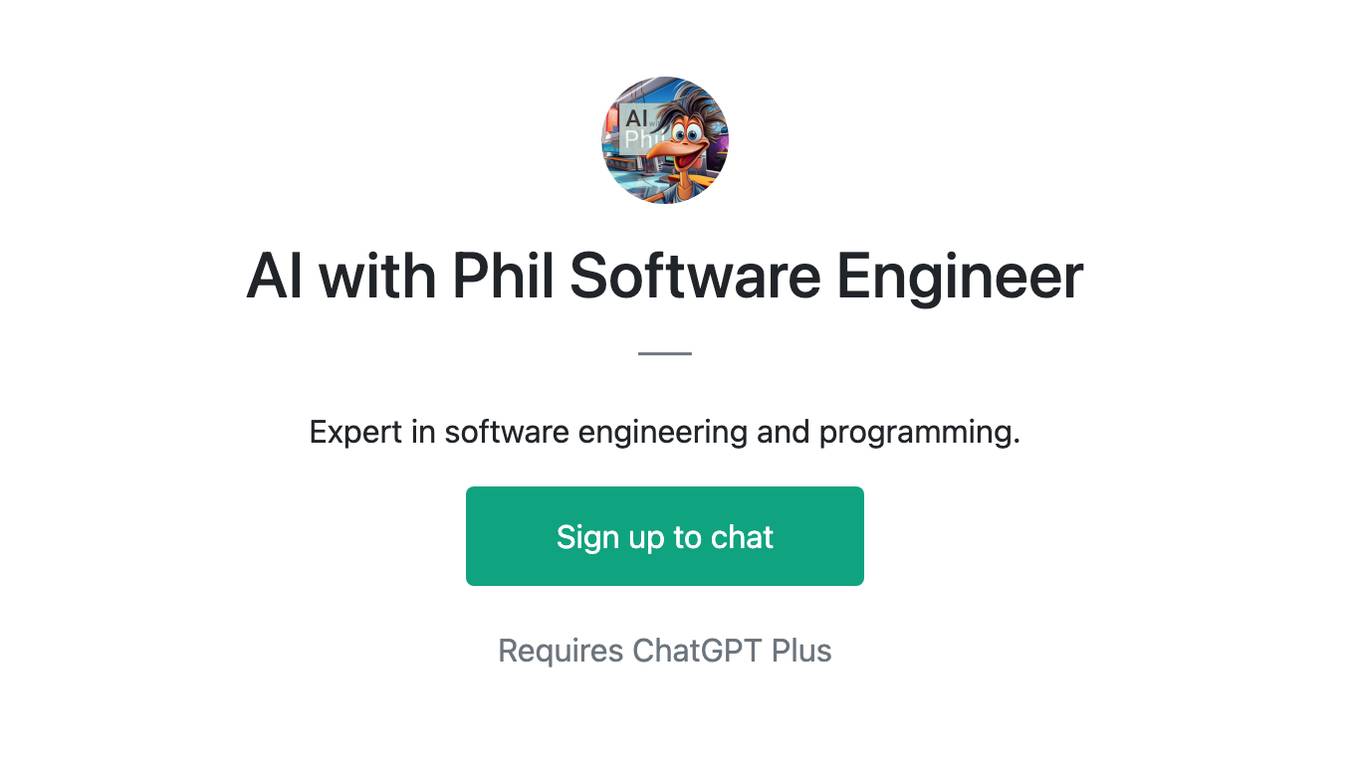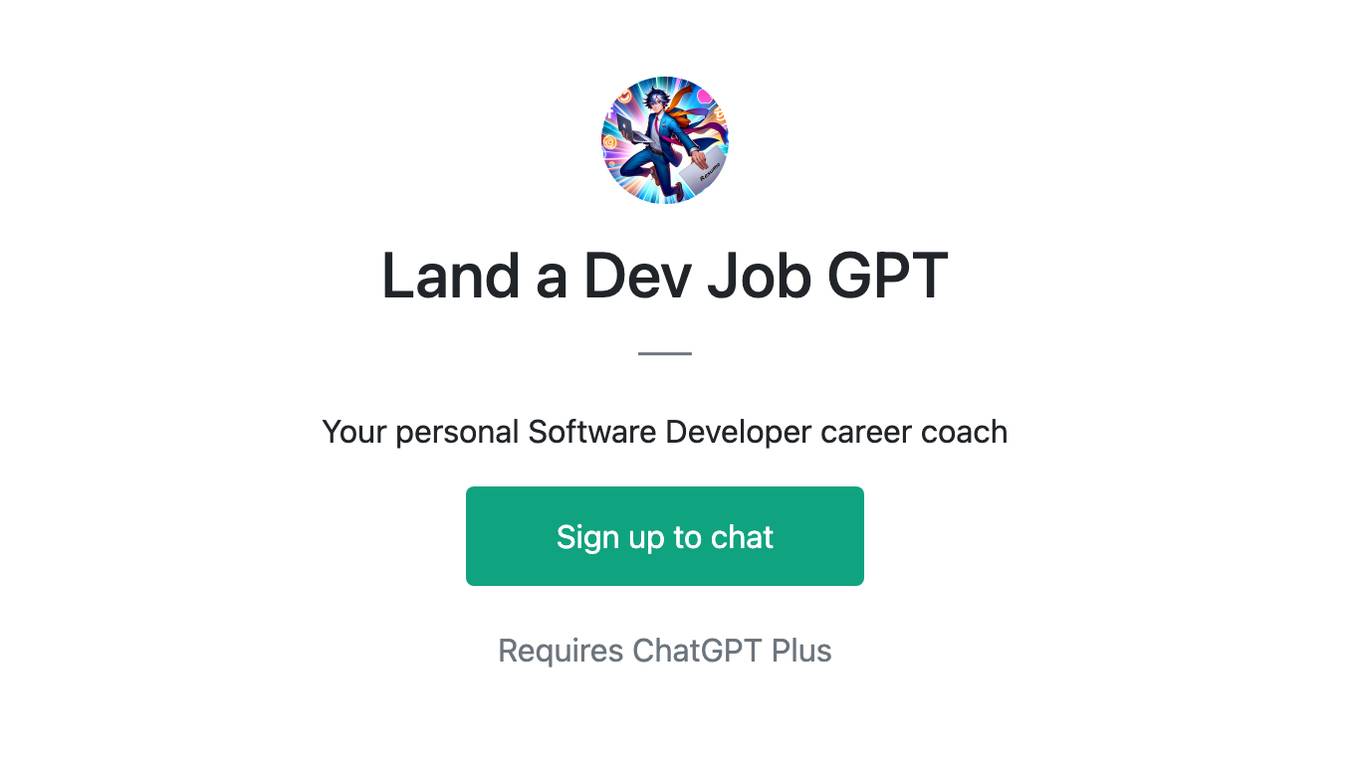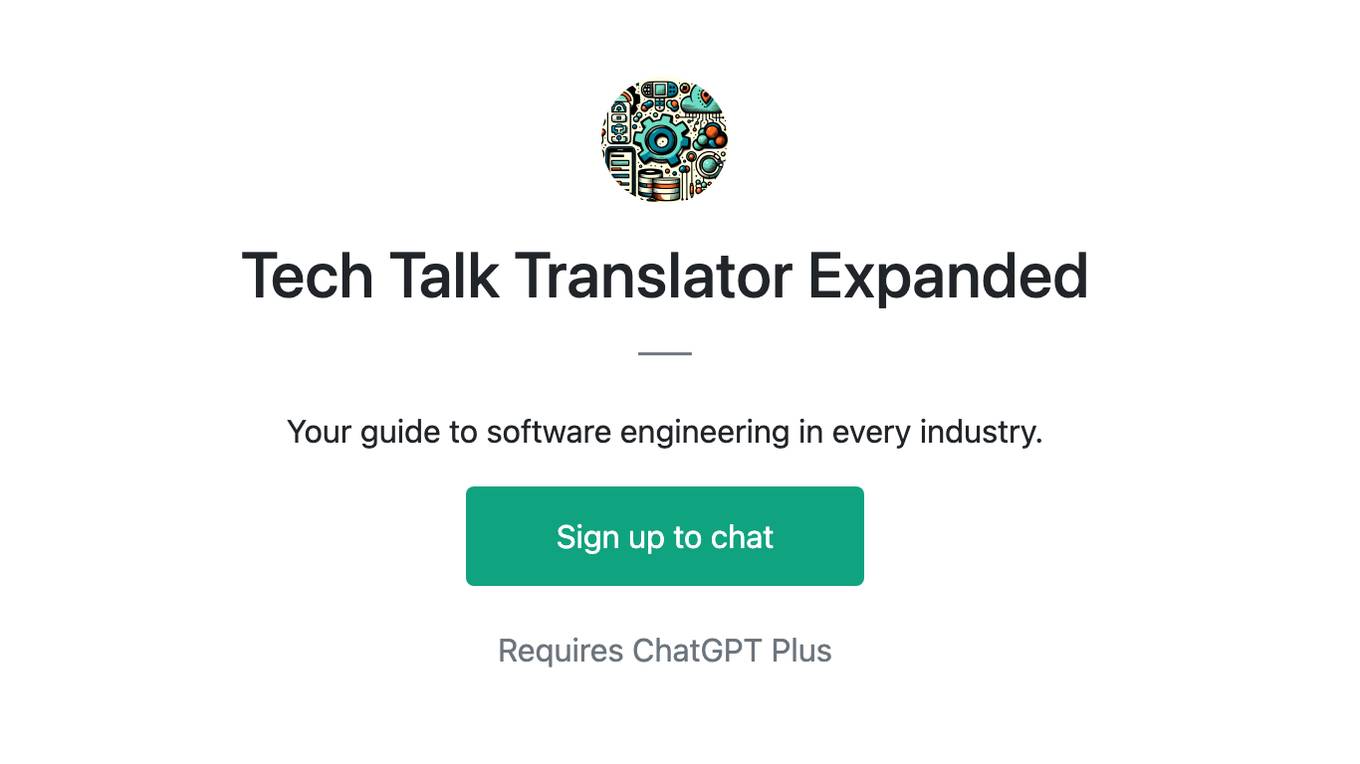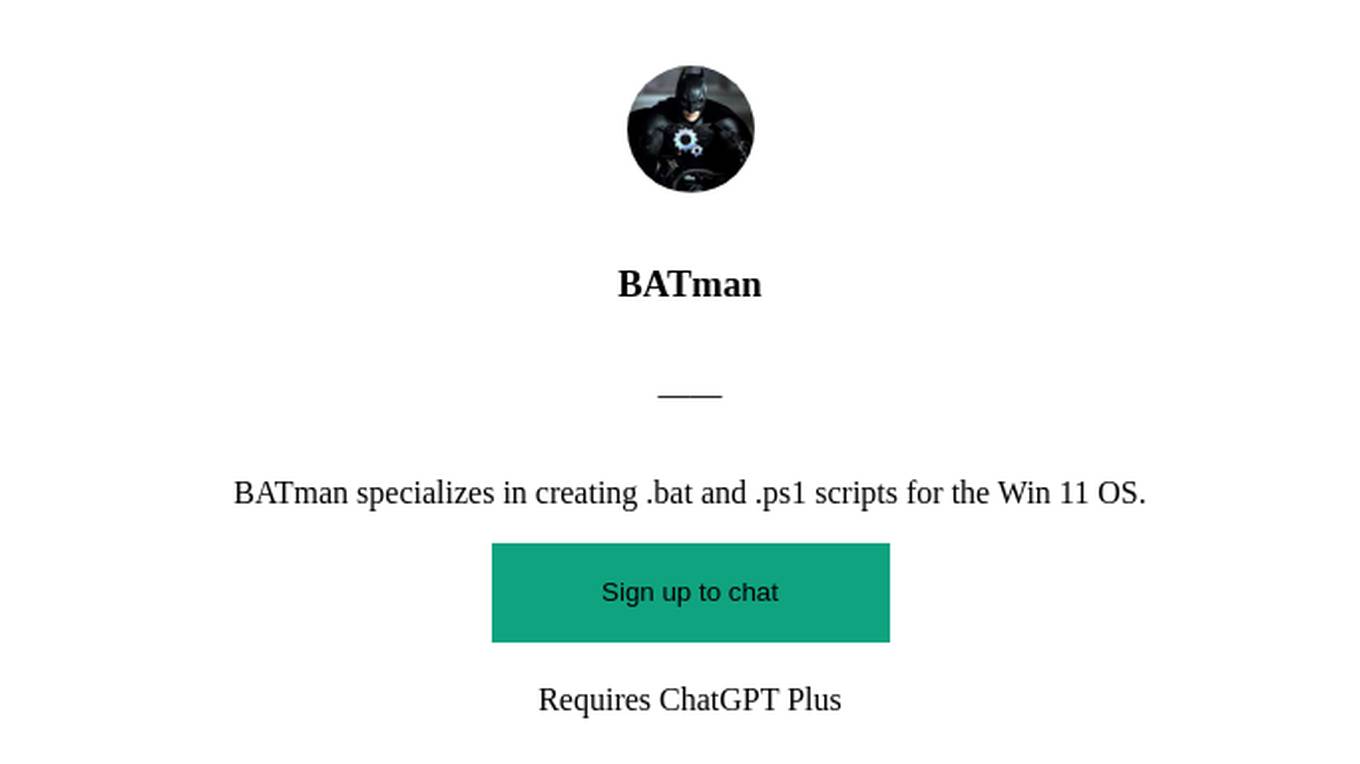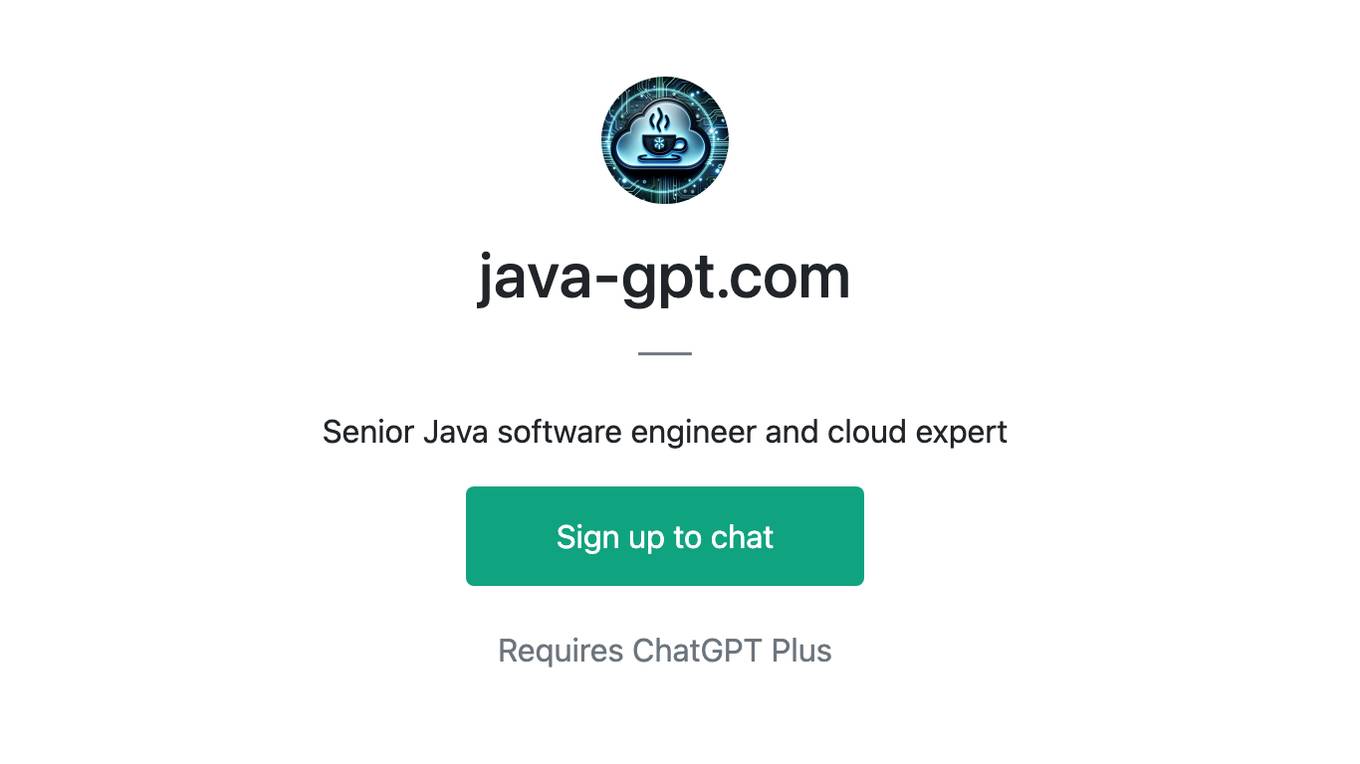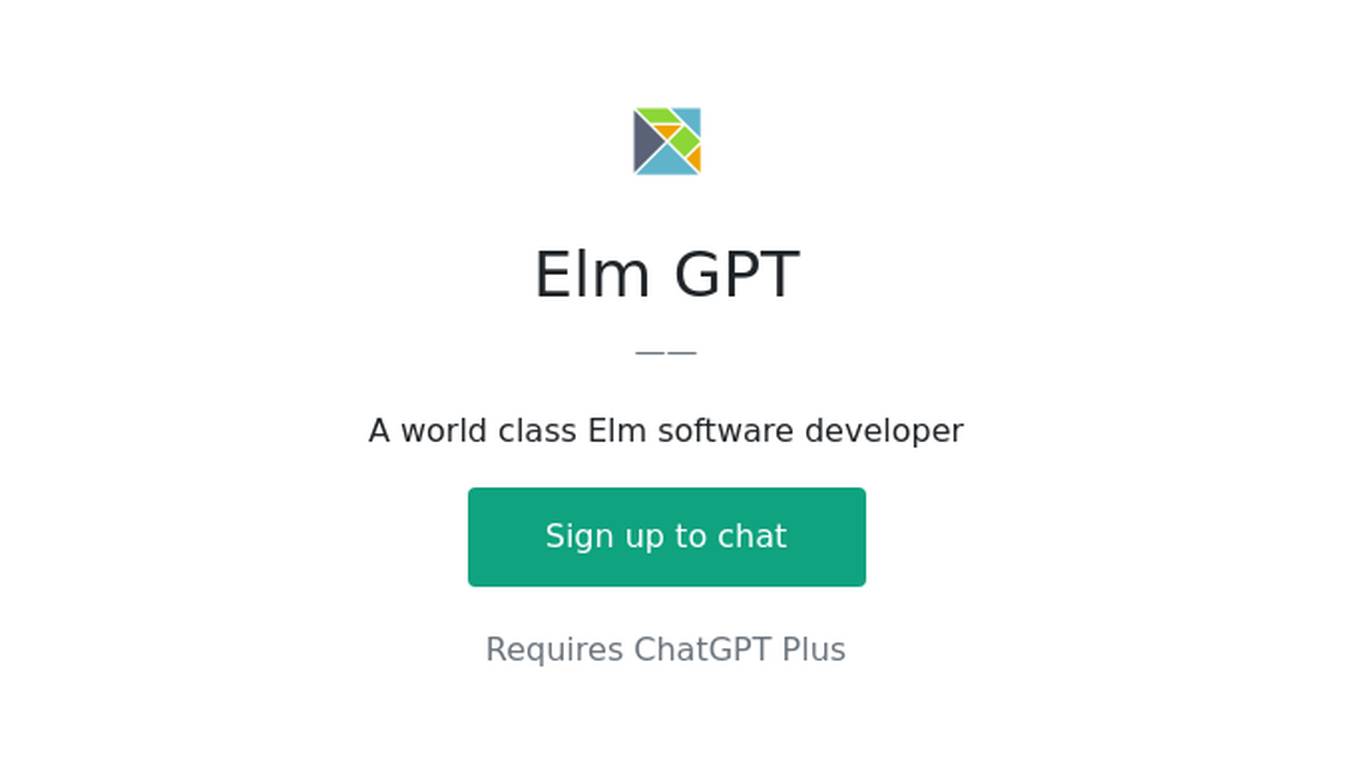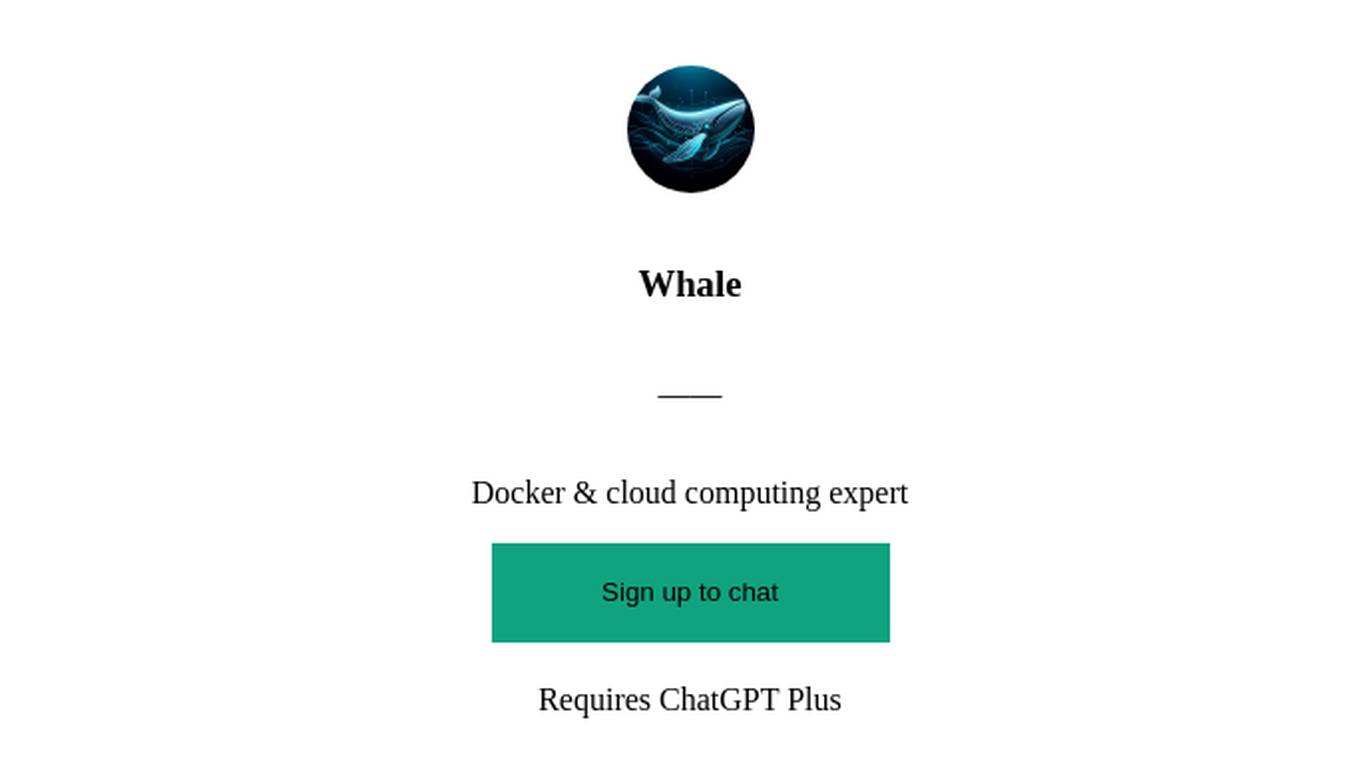Best AI tools for< Deploy Software >
20 - AI tool Sites
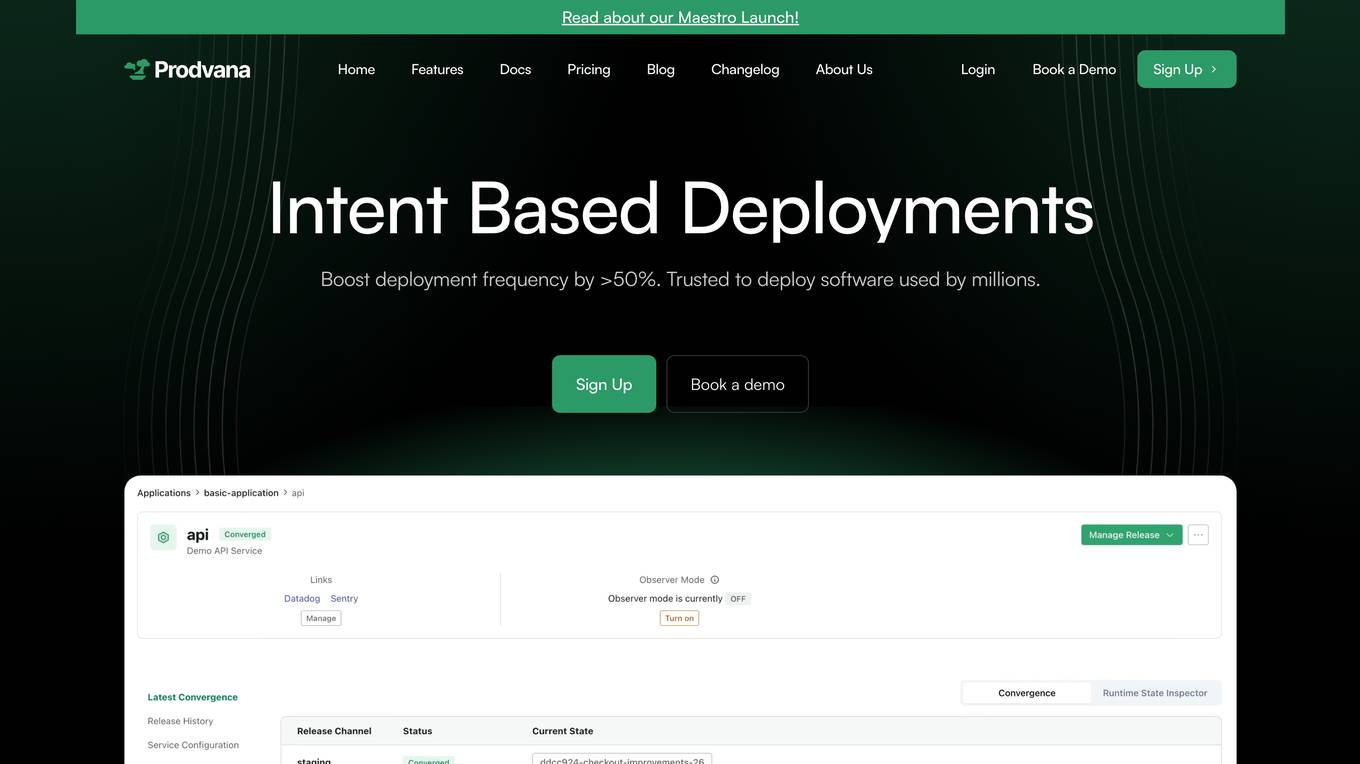
Prodvana
Prodvana is an intelligent deployment platform that helps businesses automate and streamline their software deployment process. It provides a variety of features to help businesses improve the speed, reliability, and security of their deployments. Prodvana is a cloud-based platform that can be used with any type of infrastructure, including on-premises, hybrid, and multi-cloud environments. It is also compatible with a wide range of DevOps tools and technologies. Prodvana's key features include: Intent-based deployments: Prodvana uses intent-based deployment technology to automate the deployment process. This means that businesses can simply specify their deployment goals, and Prodvana will automatically generate and execute the necessary steps to achieve those goals. This can save businesses a significant amount of time and effort. Guardrails for deployments: Prodvana provides a variety of guardrails to help businesses ensure the security and reliability of their deployments. These guardrails include approvals, database validations, automatic deployment validation, and simple interfaces to add custom guardrails. This helps businesses to prevent errors and reduce the risk of outages. Frictionless DevEx: Prodvana provides a frictionless developer experience by tracking commits through the infrastructure, ensuring complete visibility beyond just Docker images. This helps developers to quickly identify and resolve issues, and it also makes it easier to collaborate with other team members. Intelligence with Clairvoyance: Prodvana's Clairvoyance feature provides businesses with insights into the impact of their deployments before they are executed. This helps businesses to make more informed decisions about their deployments and to avoid potential problems. Easy integrations: Prodvana integrates seamlessly with a variety of DevOps tools and technologies. This makes it easy for businesses to use Prodvana with their existing workflows and processes.
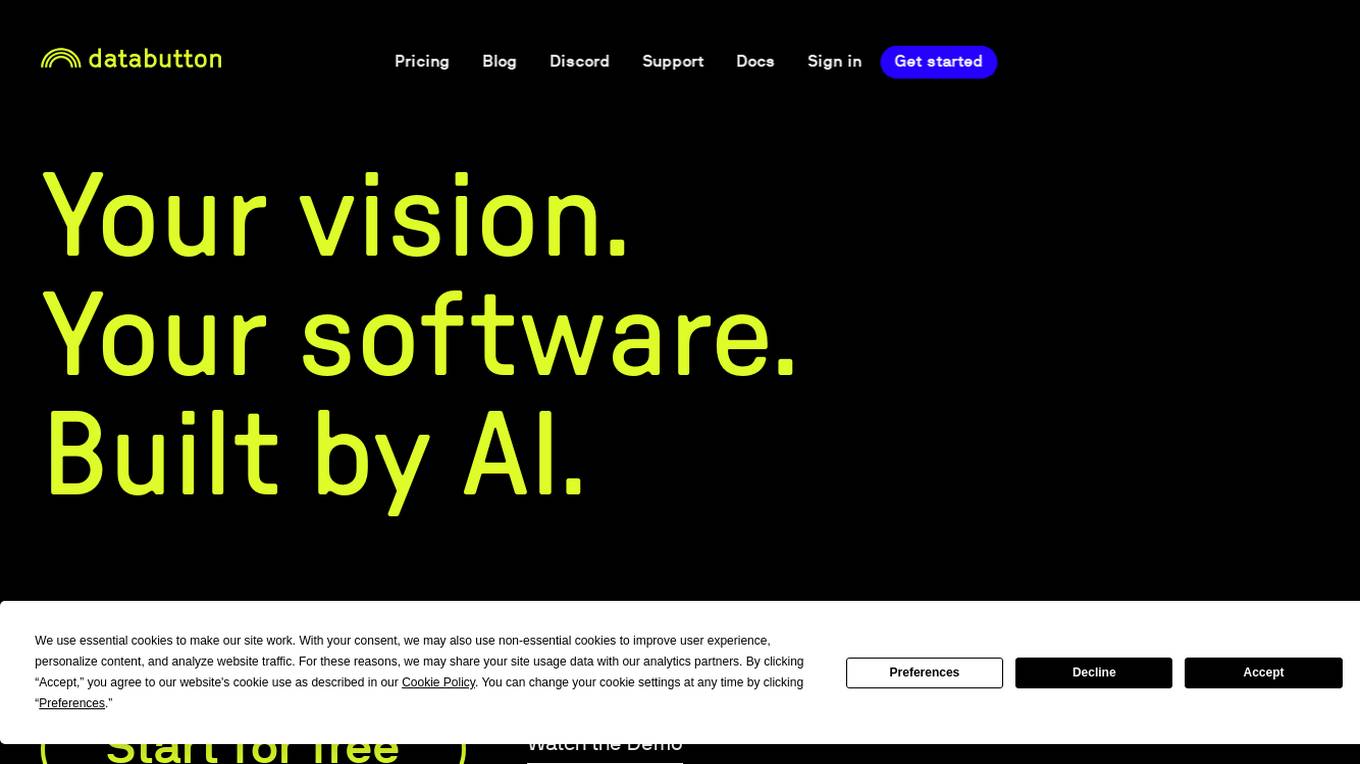
Databutton
Databutton is an AI developer tool designed for non-techies to build software applications with the help of reasoning AI. It allows users to share their app vision, specs, and design inspiration to get started, create high-level development plans, execute tasks, and take technical ownership. The tool offers deployment to AWS and Google Cloud, scalable infrastructure, and snappy load times. Databutton provides different pricing plans for users based on their needs, including options for teaming up with AI, human advisors, or human developers.

Replit
Replit is a software creation platform that provides an integrated development environment (IDE), artificial intelligence (AI) assistance, and deployment services. It allows users to build, test, and deploy software projects directly from their browser, without the need for local setup or configuration. Replit offers real-time collaboration, code generation, debugging, and autocompletion features powered by AI. It supports multiple programming languages and frameworks, making it suitable for a wide range of development projects.
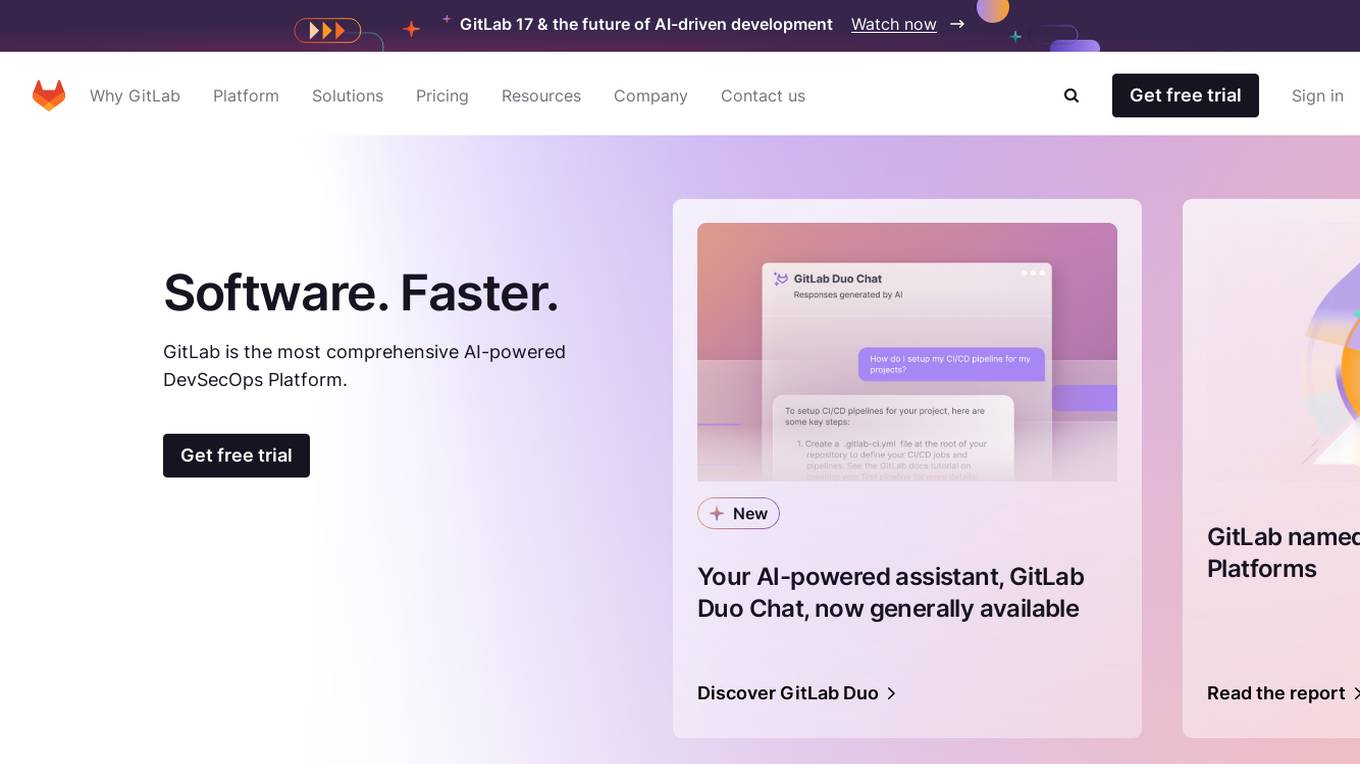
GitLab
GitLab is a comprehensive AI-powered DevSecOps platform that balances speed and security in a single platform. It automates software delivery, boosts productivity, and secures the end-to-end software supply chain. GitLab simplifies the toolchain by providing all essential DevSecOps tools in one place, accelerates software delivery through automation and AI-powered workflows, and integrates security seamlessly. It allows users to deploy anywhere without cloud vendor lock-in, offering value stream management, analytics, and insights to accelerate coding. GitLab is trusted by industry leaders for building mission-critical software and is recognized as a Leader in DevOps Platforms by various industry analysts.
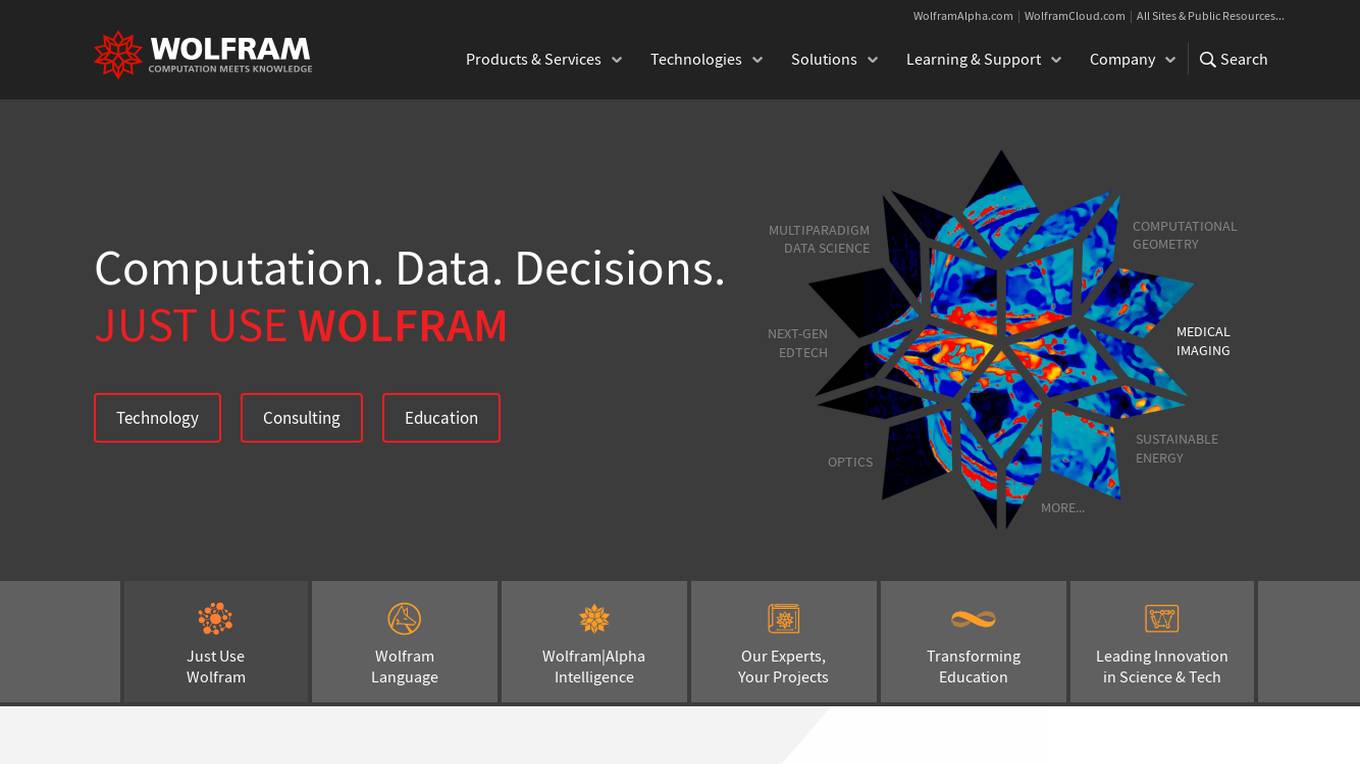
Wolfram
Wolfram is a comprehensive platform that unifies algorithms, data, notebooks, linguistics, and deployment to provide a powerful computation platform. It offers a range of products and services for various industries, including education, engineering, science, and technology. Wolfram is known for its revolutionary knowledge-based programming language, Wolfram Language, and its flagship product Wolfram|Alpha, a computational knowledge engine. The platform also includes Wolfram Cloud for cloud-based services, Wolfram Engine for software implementation, and Wolfram Data Framework for real-world data analysis.
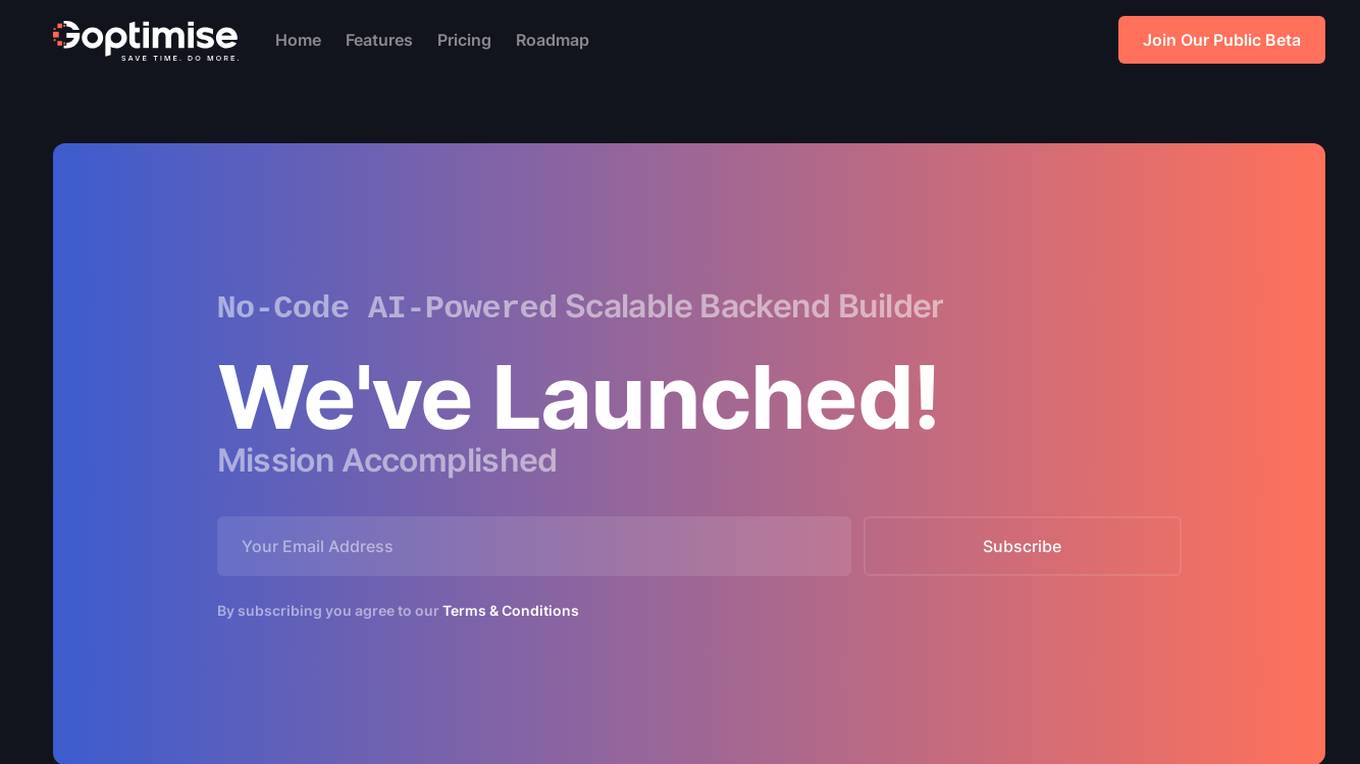
Goptimise
Goptimise is a no-code AI-powered scalable backend builder that helps developers craft scalable, seamless, powerful, and intuitive backend solutions. It offers a solid foundation with robust and scalable infrastructure, including dedicated infrastructure, security, and scalability. Goptimise simplifies software rollouts with one-click deployment, automating the process and amplifying productivity. It also provides smart API suggestions, leveraging AI algorithms to offer intelligent recommendations for API design and accelerating development with automated recommendations tailored to each project. Goptimise's intuitive visual interface and effortless integration make it easy to use, and its customizable workspaces allow for dynamic data management and a personalized development experience.
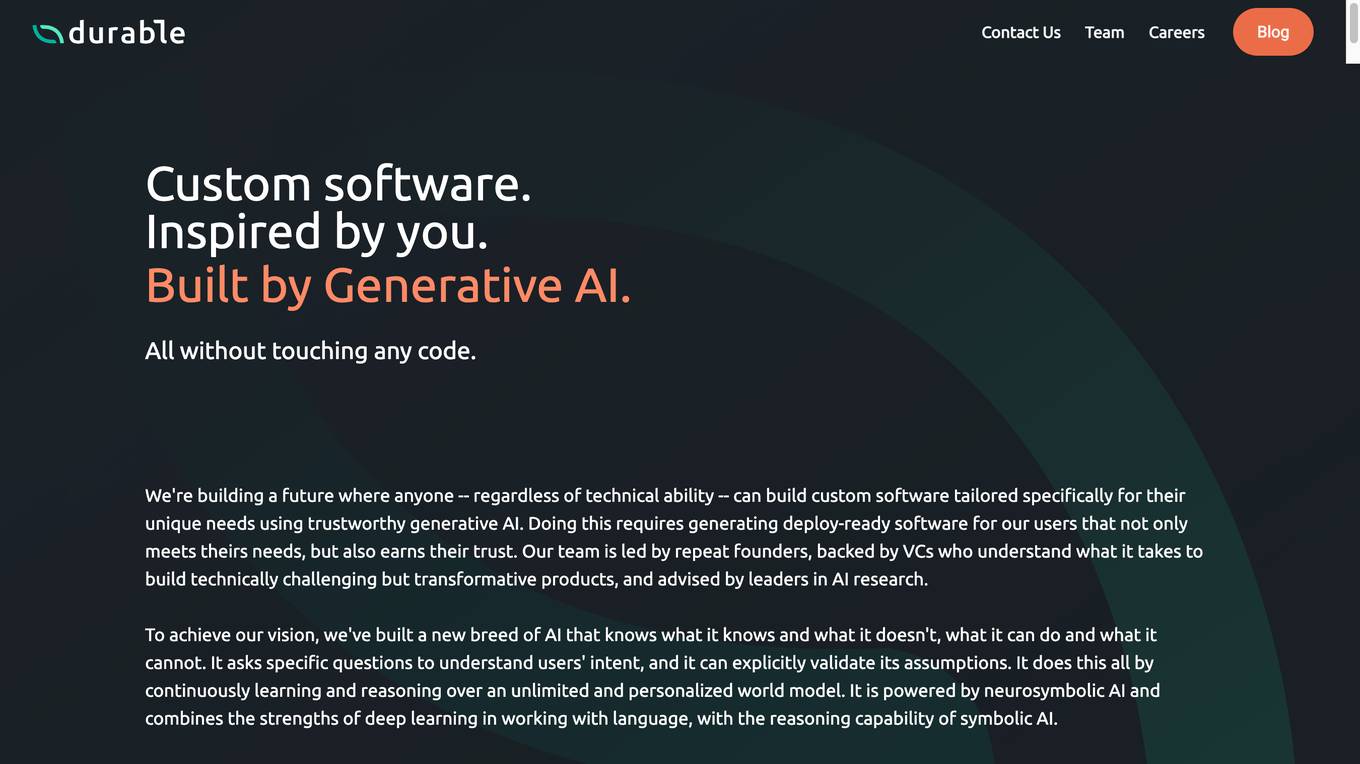
Durable
Durable is a custom software development platform powered by generative AI. It enables users to create tailored software solutions without writing any code. The platform is designed to be accessible to users of all technical abilities and leverages advanced AI techniques to generate deploy-ready software that meets specific user needs and earns their trust. The team behind Durable comprises experienced founders, venture capital investors, and AI research leaders. Their AI technology combines deep learning and symbolic AI to understand user intent, validate assumptions, and continuously learn and reason. Durable is committed to developing the next chapter of AI and welcomes inquiries from driven and enthusiastic individuals interested in shaping the future of software development.
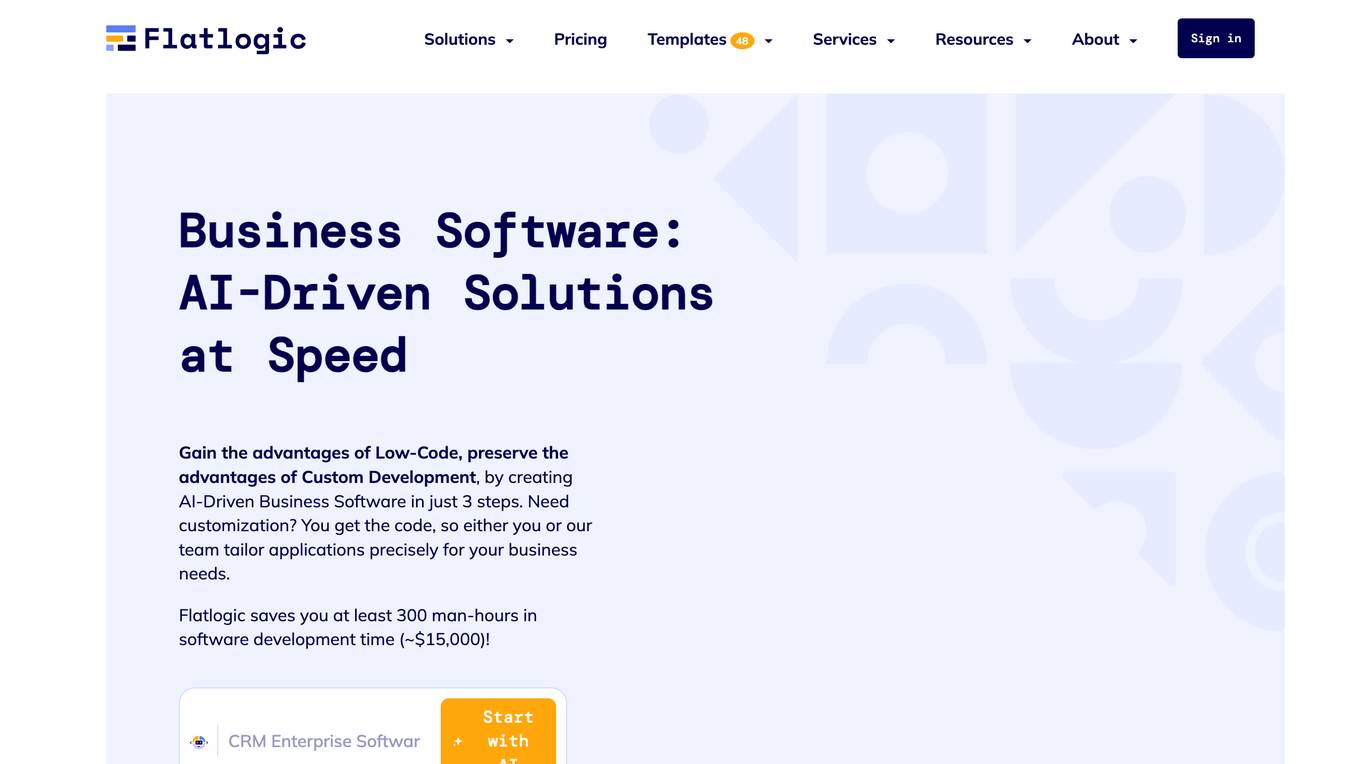
Flatlogic Solutions
Flatlogic Solutions is an AI-driven platform that enables businesses to create custom Business Software in just 3 steps. It offers a low-code solution that preserves the advantages of custom development, allowing users to own the software they create without platform restrictions. With features like AI-driven development, hosting solutions, and ready-to-use templates, Flatlogic saves time and resources in software development. The platform is designed to streamline app development, integrate AI capabilities, and provide post-launch adaptability for dynamic business needs.
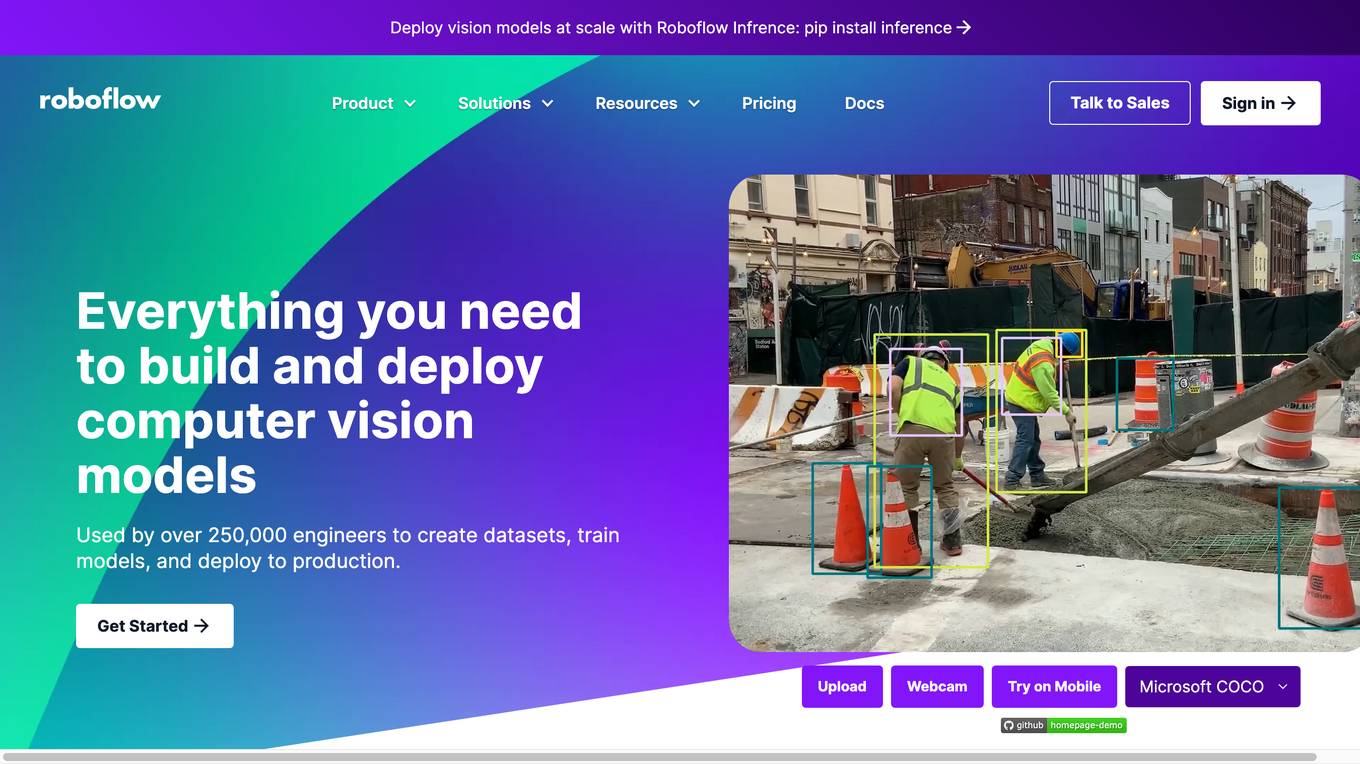
Roboflow
Roboflow is a platform that provides tools for building and deploying computer vision models. It offers a range of features, including data annotation, model training, and deployment. Roboflow is used by over 250,000 engineers to create datasets, train models, and deploy to production.
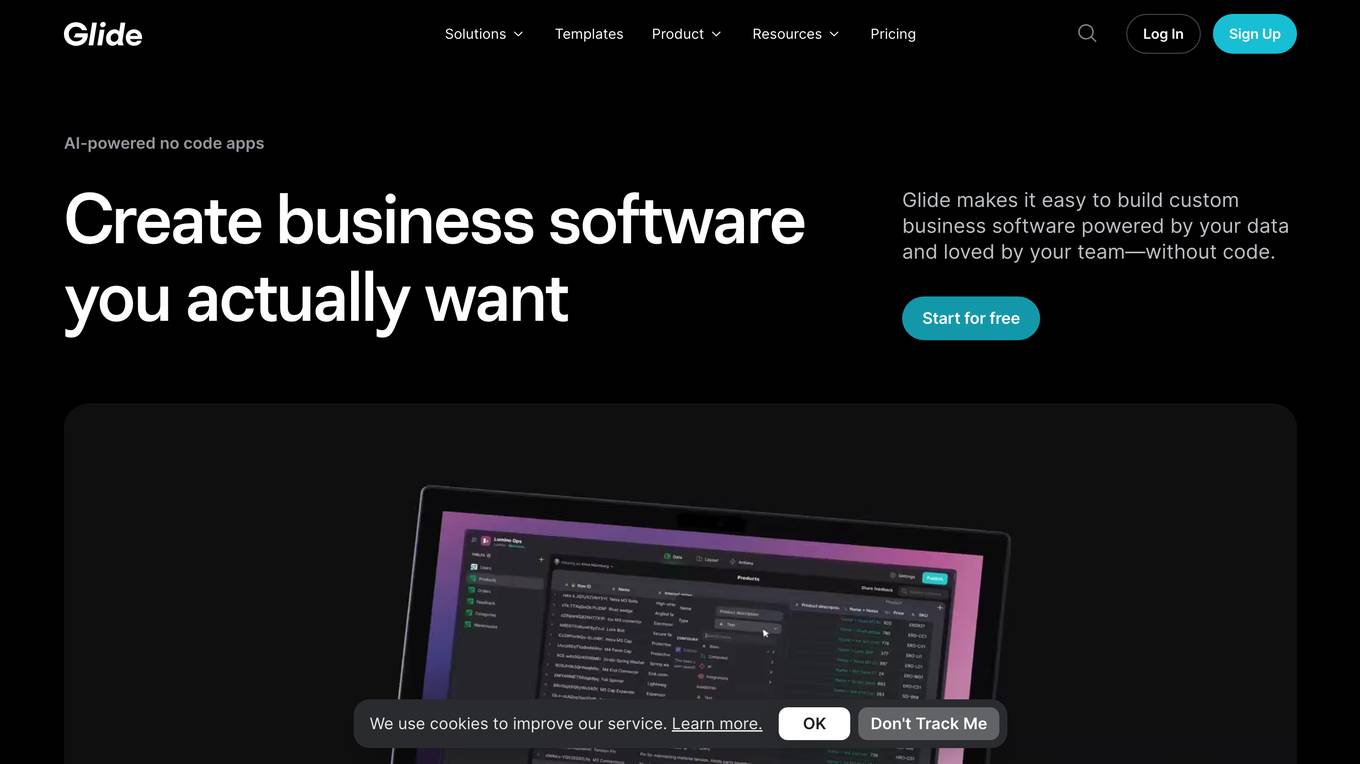
Glide
Glide is an AI-powered no code app builder that helps businesses create custom tools for a faster, more efficient way to work without the need for coding. It allows users to transform time-consuming processes into modern, interactive apps, tailored to their needs in weeks. Glide aims to future-proof businesses by automating tasks and enhancing productivity with a modern mobile experience. The platform has been used by over 100,000 companies to create custom apps, offering custom development without the headaches.
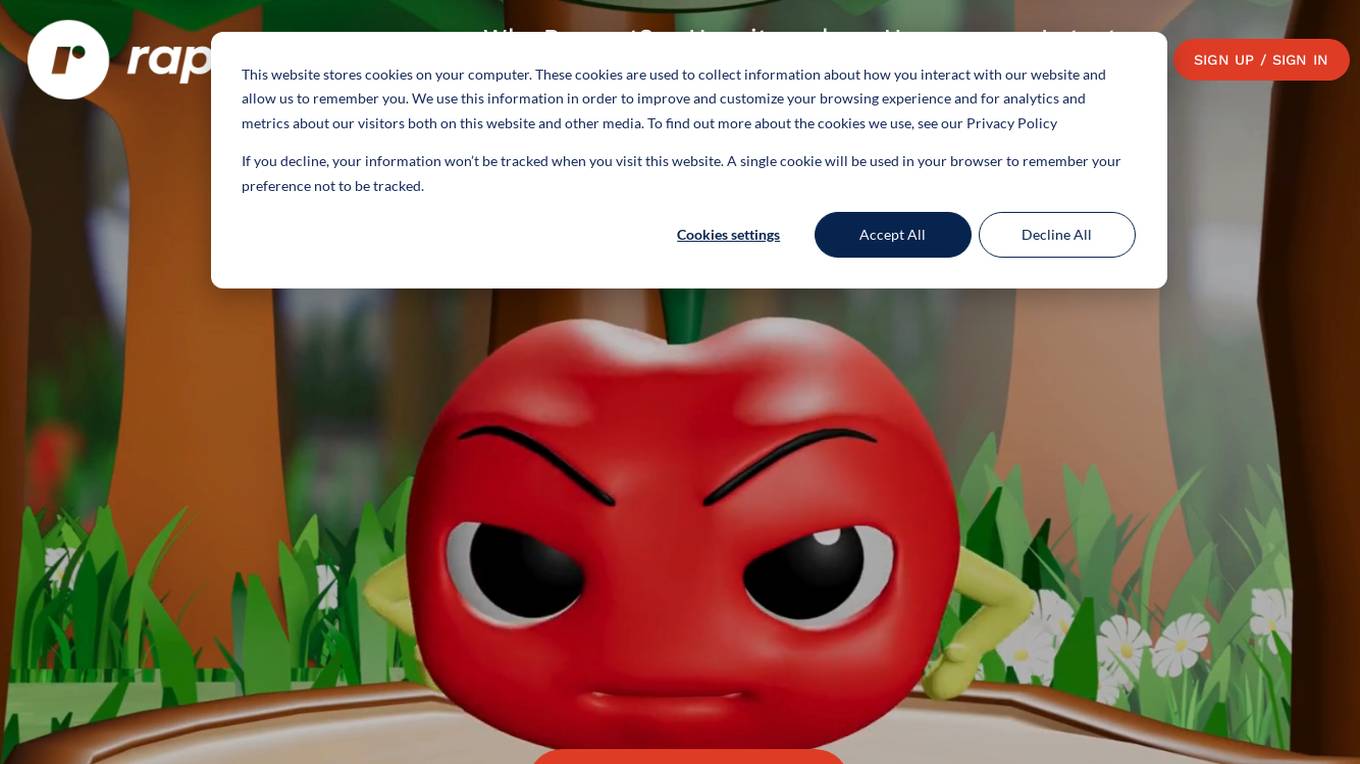
Rapport Software
Rapport Software is an AI-generated character animation tool that allows users to create, animate, and deploy emotionally intelligent characters to enhance dialogue with the audience. It offers features like recognizing and reflecting emotions, accurate lip sync, support for any language, ready-made or custom-built character options, and integrations with text-to-speech and speech-recognition tools. The application aims to build deeper connections, increase sales, and humanize AI through relatable characters and meaningful conversations.

Unified DevOps platform to build AI applications
This is a unified DevOps platform to build AI applications. It provides a comprehensive set of tools and services to help developers build, deploy, and manage AI applications. The platform includes a variety of features such as a code editor, a debugger, a profiler, and a deployment manager. It also provides access to a variety of AI services, such as natural language processing, machine learning, and computer vision.
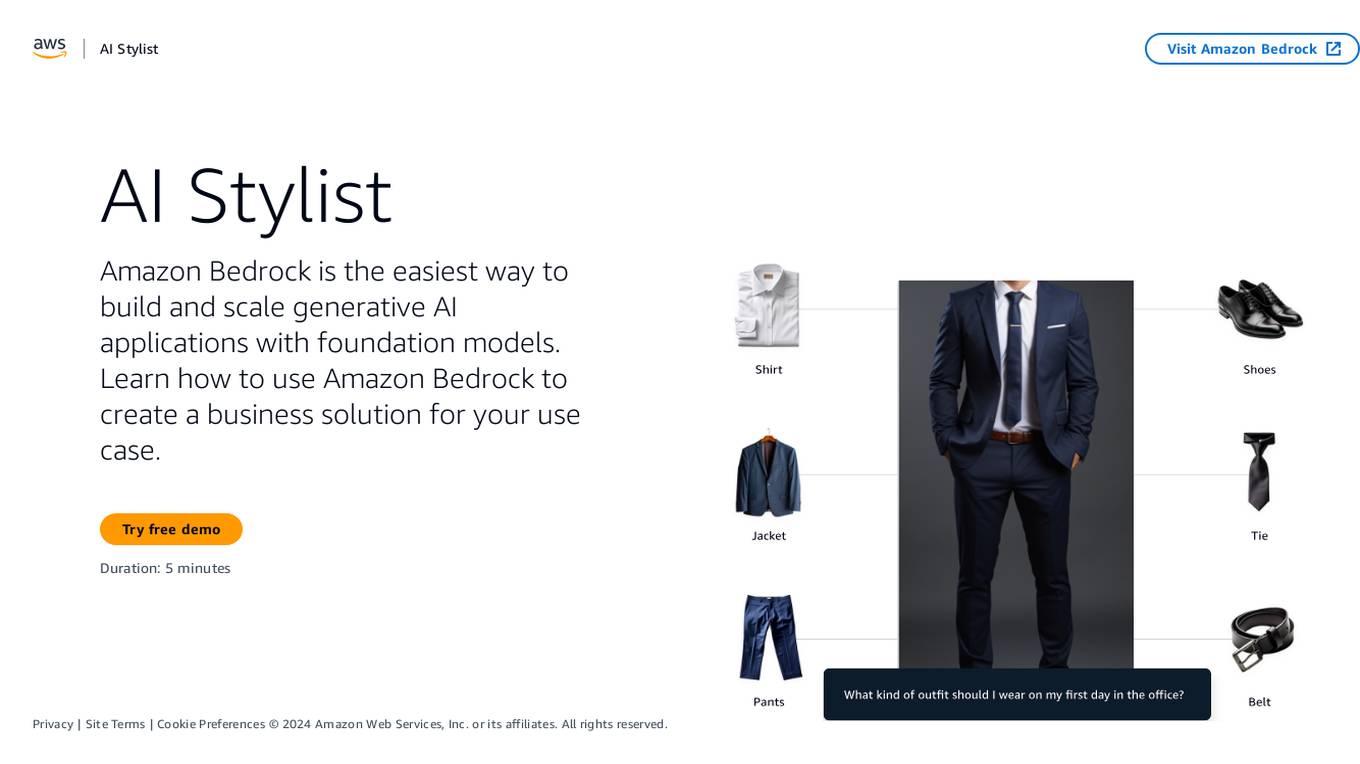
Amazon Bedrock
Amazon Bedrock is a cloud-based platform that enables developers to build, deploy, and manage serverless applications. It provides a fully managed environment that takes care of the infrastructure and operations, so developers can focus on writing code. Bedrock also offers a variety of tools and services to help developers build and deploy their applications, including a code editor, a debugger, and a deployment pipeline.
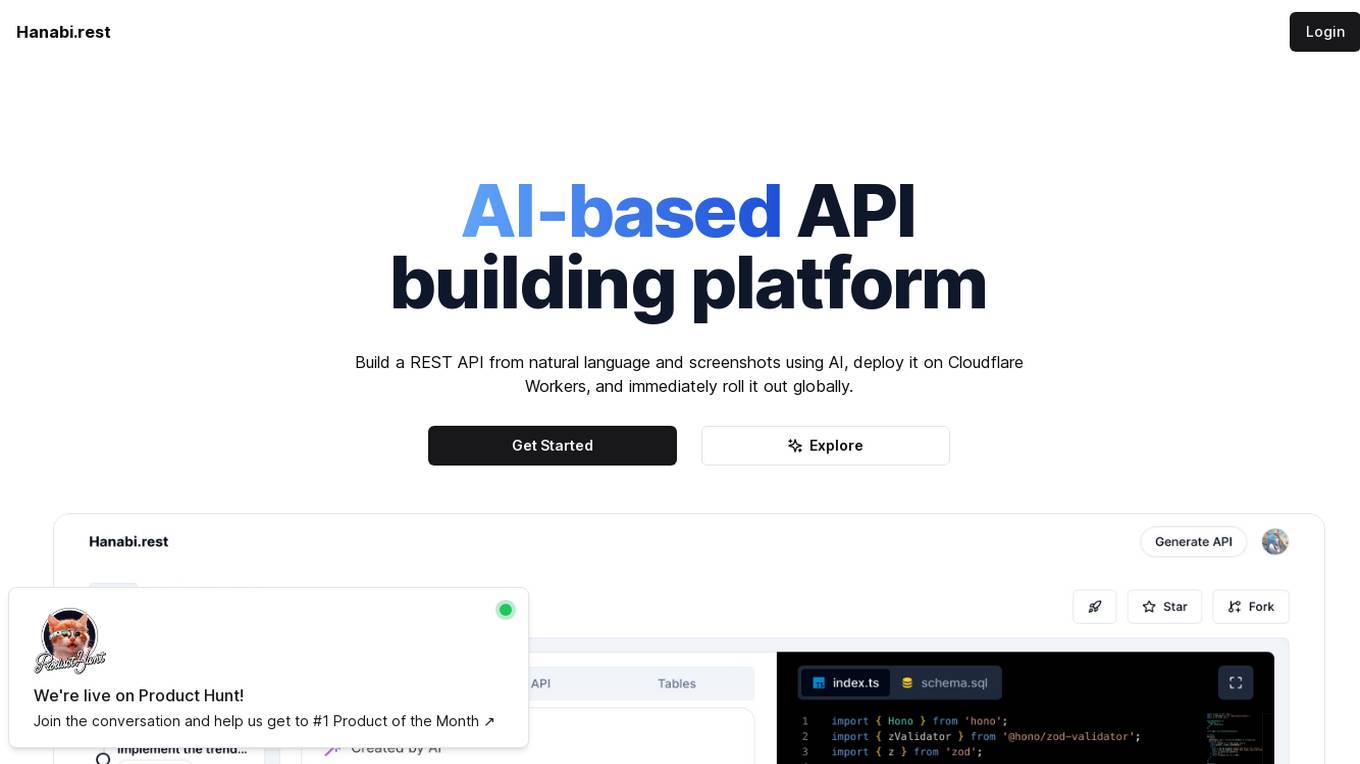
Hanabi.rest
Hanabi.rest is an AI-based API building platform that allows users to create REST APIs from natural language and screenshots using AI technology. Users can deploy the APIs on Cloudflare Workers and roll them out globally. The platform offers a live editor for testing database access and API endpoints, generates code compatible with various runtimes, and provides features like sharing APIs via URL, npm package integration, and CLI dump functionality. Hanabi.rest simplifies API design and deployment by leveraging natural language processing, image recognition, and v0.dev components.

Superflows
Superflows is a tool that allows you to add an AI Copilot to your SaaS product. This AI Copilot can answer questions and perform tasks for users via chat. It is designed to be easy to set up and configure, and it can be integrated into your codebase with just a few lines of code. Superflows is a great way to improve the user experience of your SaaS product and help users get the most out of your software.
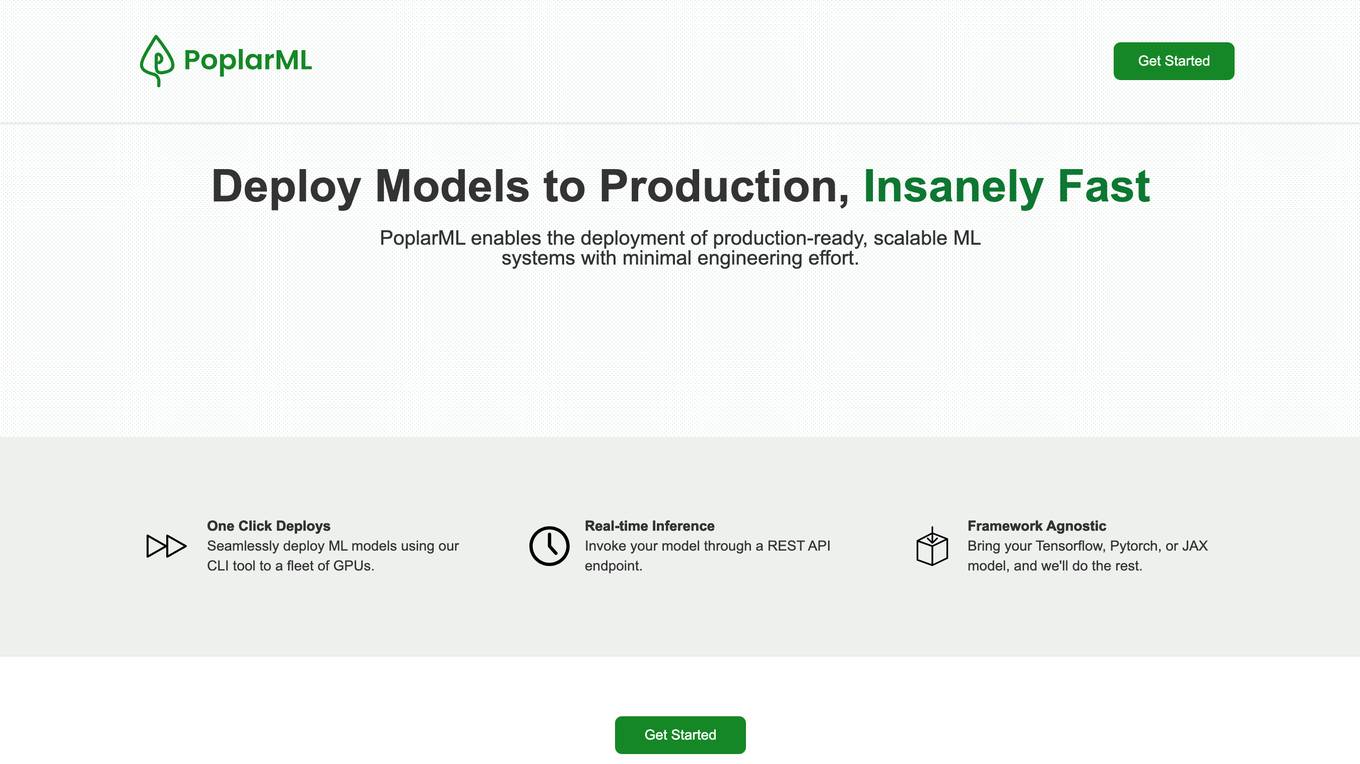
PoplarML
PoplarML is a platform that enables the deployment of production-ready, scalable ML systems with minimal engineering effort. It offers one-click deploys, real-time inference, and framework agnostic support. With PoplarML, users can seamlessly deploy ML models using a CLI tool to a fleet of GPUs and invoke their models through a REST API endpoint. The platform supports Tensorflow, Pytorch, and JAX models.
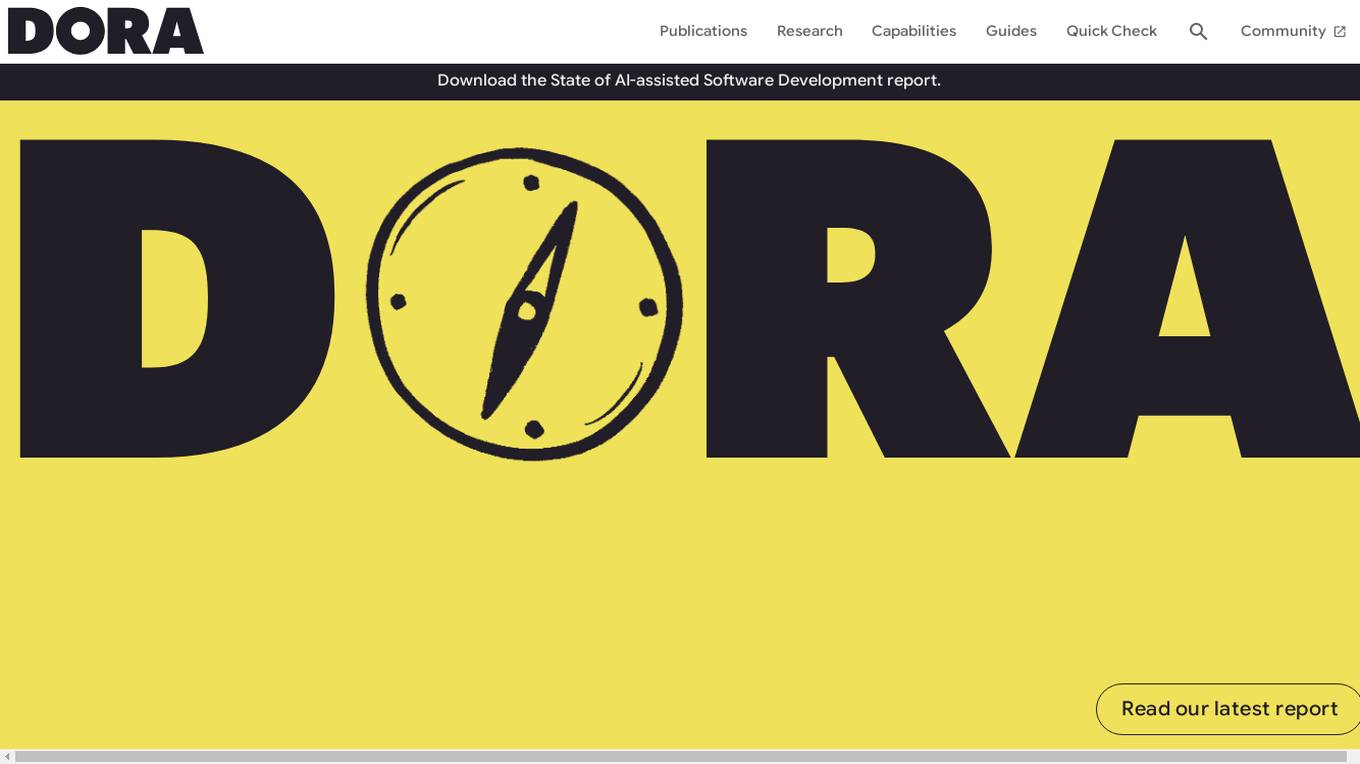
DORA
DORA is a research program by Google Cloud that focuses on understanding the capabilities driving software delivery and operations performance. It helps teams apply these capabilities to enhance organizational performance. The program introduces the DORA AI Capabilities Model, identifying key technical and cultural practices that amplify the positive impacts of AI on performance. DORA offers resources, guides, and tools like the DORA Quick Check to help organizations improve their software delivery goals.

Mystic.ai
Mystic.ai is an AI tool designed to deploy and scale Machine Learning models with ease. It offers a fully managed Kubernetes platform that runs in your own cloud, allowing users to deploy ML models in their own Azure/AWS/GCP account or in a shared GPU cluster. Mystic.ai provides cost optimizations, fast inference, simpler developer experience, and performance optimizations to ensure high-performance AI model serving. With features like pay-as-you-go API, cloud integration with AWS/Azure/GCP, and a beautiful dashboard, Mystic.ai simplifies the deployment and management of ML models for data scientists and AI engineers.

Azure Static Web Apps
Azure Static Web Apps is a platform provided by Microsoft Azure for building and deploying modern web applications. It allows developers to easily host static web content and serverless APIs with seamless integration to popular frameworks like React, Angular, and Vue. With Azure Static Web Apps, developers can quickly set up continuous integration and deployment workflows, enabling them to focus on building great user experiences without worrying about infrastructure management.
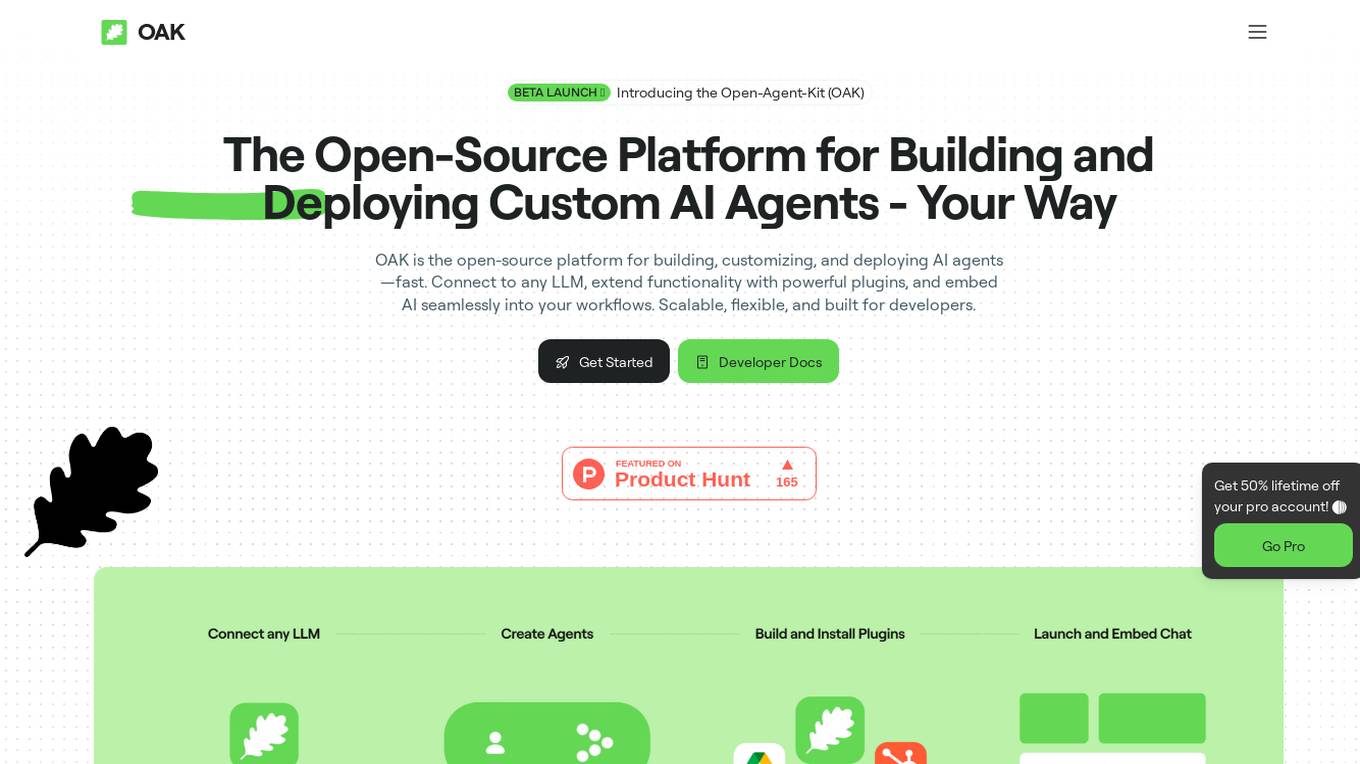
OAK
OAK is an open-source platform for building and deploying custom AI agents quickly and easily. It offers a modular design, powerful plugins, and seamless integration with various AI models. OAK is scalable, flexible, and developer-friendly, allowing users to create AI agents in minutes without hassle.
1 - Open Source AI Tools
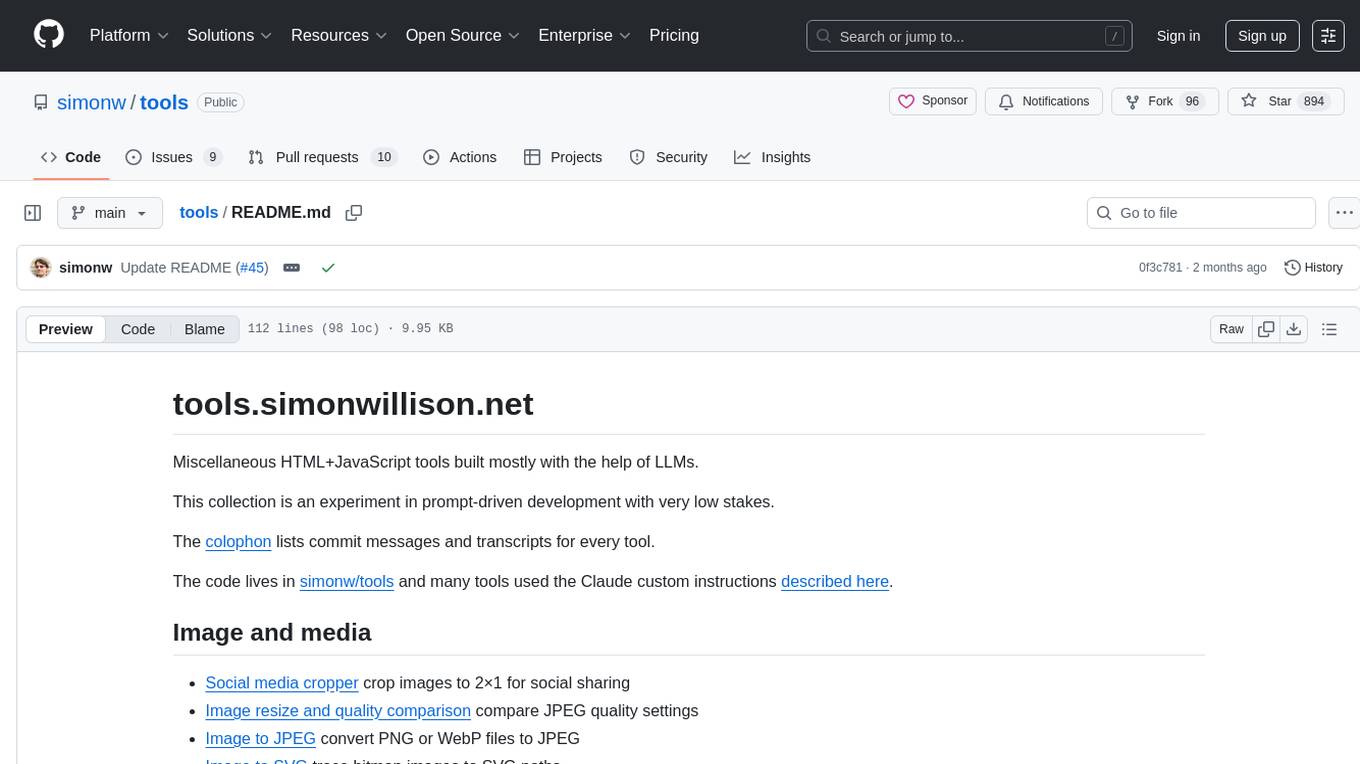
tools
This repository contains a collection of various tools and utilities that can be used for different purposes. It includes scripts, programs, and resources to assist with tasks related to software development, data analysis, automation, and more. The tools are designed to be versatile and easy to use, providing solutions for common challenges faced by developers and users alike.
20 - OpenAI Gpts
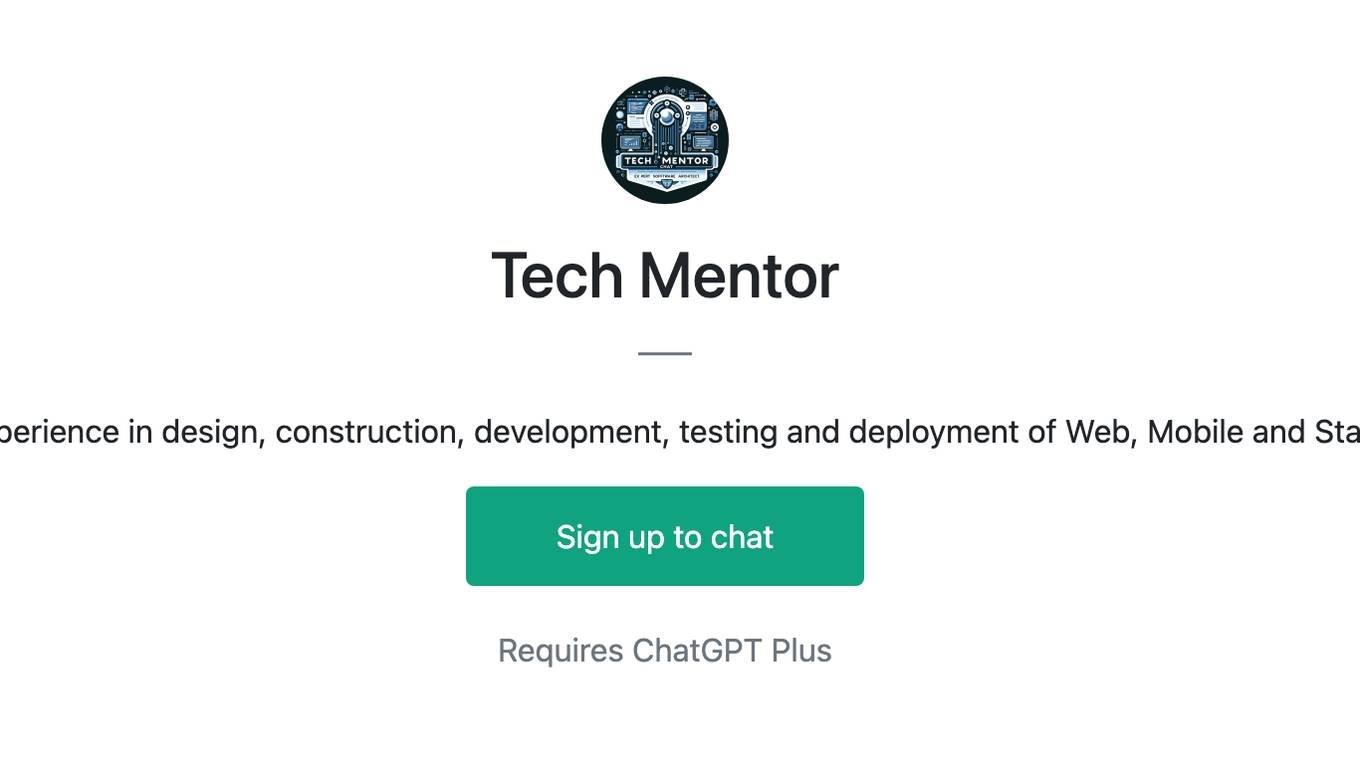
Tech Mentor
Expert software architect with experience in design, construction, development, testing and deployment of Web, Mobile and Standalone software architectures

Coder Simulator
Provides realistic software developer responses. Asks for clarification, and won't make assumptions. Often begins responses with "It depends".
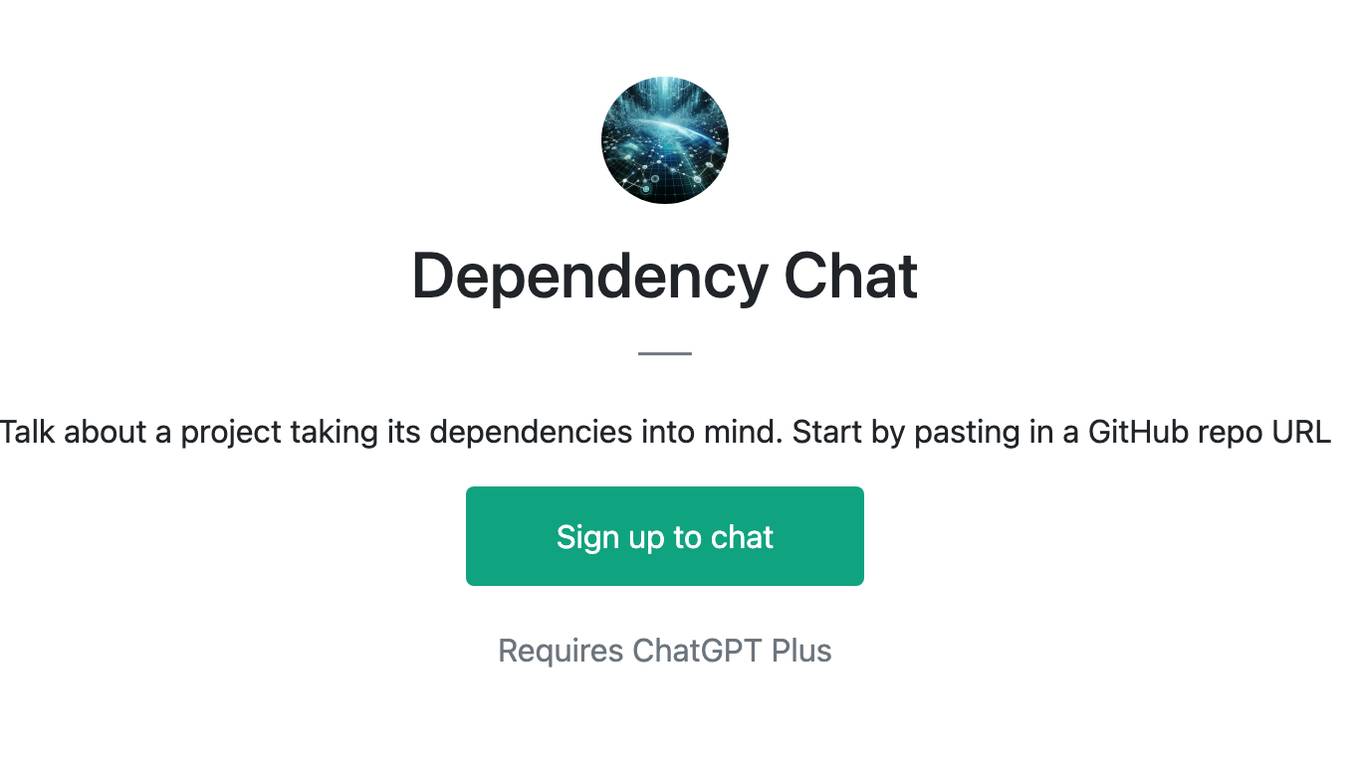
Dependency Chat
Talk about a project taking its dependencies into mind. Start by pasting in a GitHub repo URL
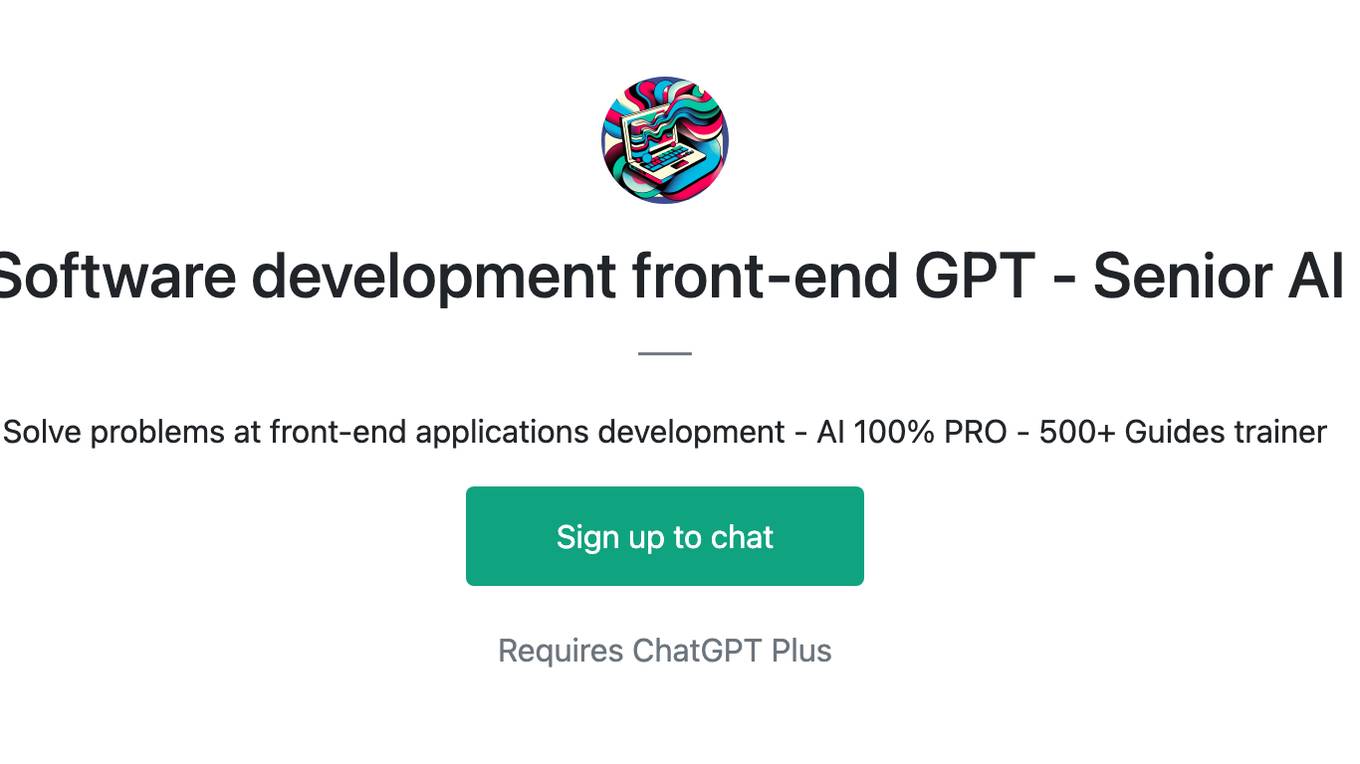
Software development front-end GPT - Senior AI
Solve problems at front-end applications development - AI 100% PRO - 500+ Guides trainer

Tech Tutor
A tech guide for software engineers, focusing on the latest tools and foundational knowledge.
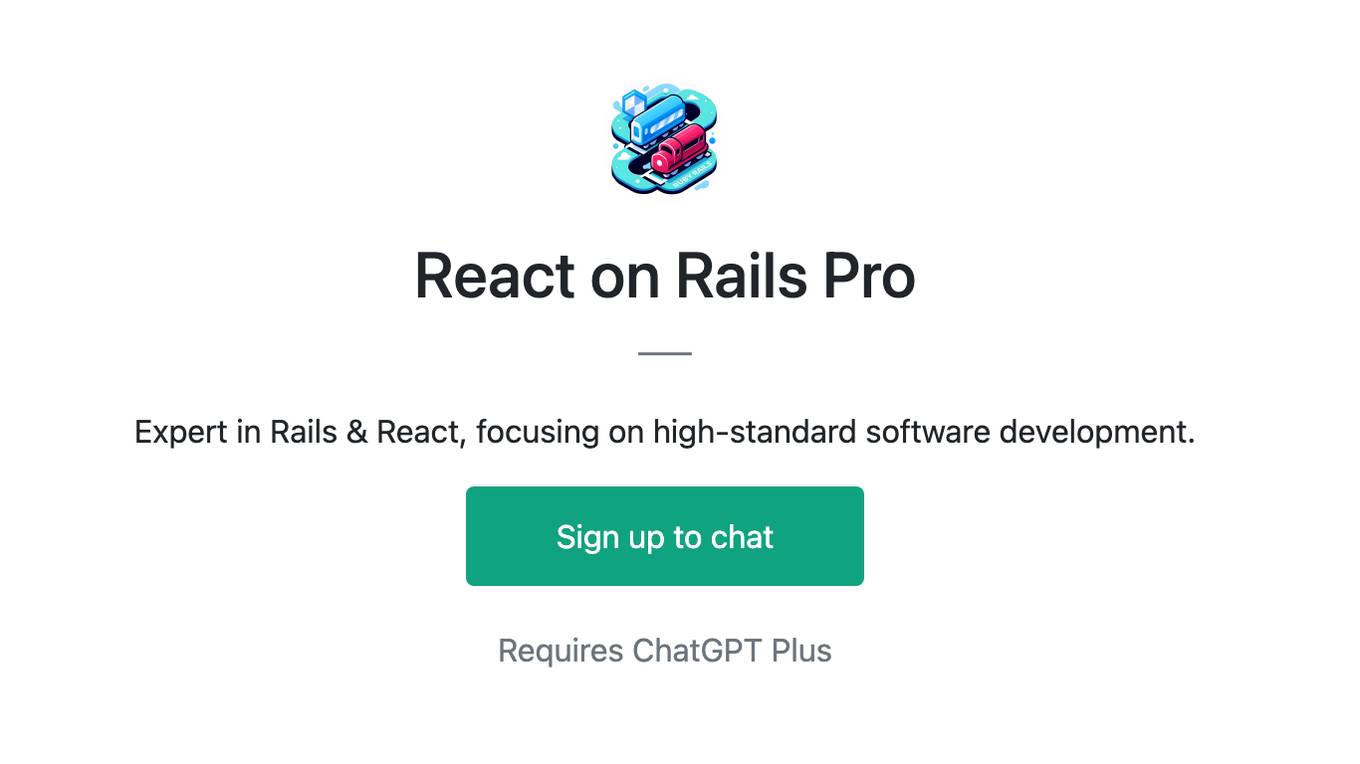
React on Rails Pro
Expert in Rails & React, focusing on high-standard software development.
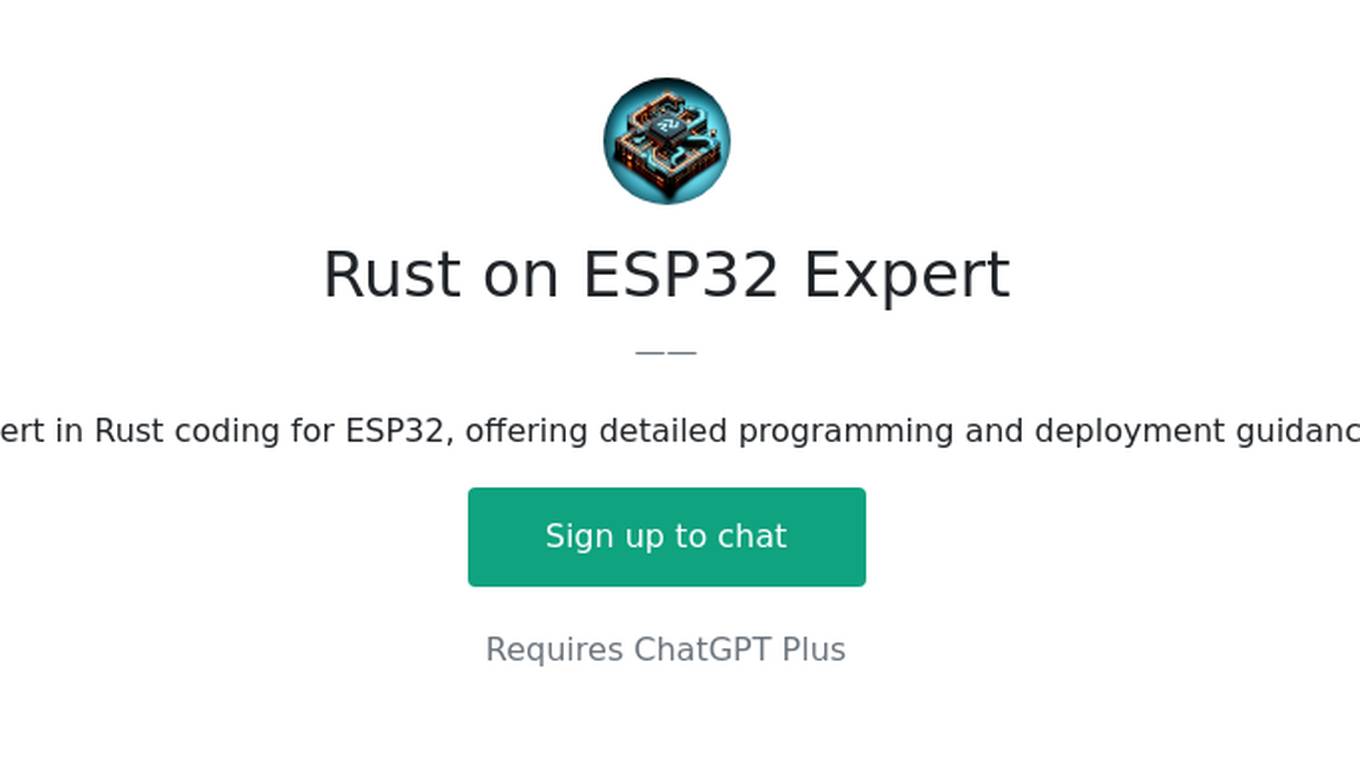
Rust on ESP32 Expert
Expert in Rust coding for ESP32, offering detailed programming and deployment guidance.
